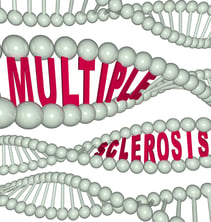
Our patients with MS are doing well. They are taking their daily doses of Vitamin D, eating clean and avoiding food sensitivities/allergies, exercising, sleeping well and doing I.V. Ozone 10 pass MAH with specific biologics. We're going to start some on the certified Cuban Scorpion Venom as another immunmodulatory medication. Others are taking a specialized oral homeopathic medication. So far, everyone is doing well. Call us to discuss your condition and see if our therapies are right for you.
1. Risk in patients diagnosed with multiple sclerosis (MS) for __________ is increased if cognitive impairment is present at time of MS diagnosis.
A. Bloating
B. Flatulence
C. Stool characteristics
D. A and B
E. All of the above
2. True or False. Among MS patients, cortical thinning has been found to be a neuroimaging correlate of cognitive impairment.
A. True
B. False
3. According to findings from a retrospective, 8-year, longitudinal observational study, relapsing-remitting MS patients with severe cognitive impairment __________.
A. At baseline had more severe white matter lesion volume
B. Were found at follow-up to have greater white matter lesion accumulation than those with normal cognition
C. A and B
D. None of the above
4. True or False. In the same study, the majority of cognitively normal MS patients experienced progression on the Expanded Disability Status Scale (EDSS).
A. True
B. False
5. True or False. Studies have found a strong relationship between gray matter damage and the development of cognitive impairment in patients with MS.
A. True
B. False
MS Drug and Increased Cancer Risk
Nutrition for MS - 5 Key Nutrients
Answer Key
1. E. All of the above - According to retrospective, longitudinal observational study results cited in an article published online in Clinical Neurology News, “[c]ognitive impairment in individuals at the time of multiple sclerosis diagnosis imparts a significantly higher risk for disability progression, transition to secondary progressive disease, and cortical thinning.”
2. A. True - The results of a retrospective, longitudinal observational study cited in an article published online in Clinical Neurology News “identified cortical thinning as a neuroimaging correlate of cognitive impairment that was detected only at follow-up between the cognitively impaired and cognitively normal patients who were otherwise similar at baseline.”
3. A. At baseline had more severe white matter lesion volume - According to retrospective, longitudinal observational study results cited in an article published online in Clinical Neurology News, relapsing-remitting MS “[p]atients with severe cognitive impairment at baseline had more severe white matter lesion volume at baseline than did others, but there was no difference in the accumulation of white matter lesions during follow-up between patients with normal cognition, mild cognitive impairment, and severe cognitive impairment, which corroborates previous studies.”
4. A. False - According to results of a retrospective, longitudinal observational study cited in an article published online in Clinical Neurology News, among cognitively normal MS patients “just 15% had disability progression on the Expanded Disability Status Scale (EDSS).”
5. A.True - According to information cited in an article published online in Clinical Neurology News, several previous longitudinal studies have demonstrated that a strong relationship exists between gray matter damage and cognitive impairment in patients with MS.



